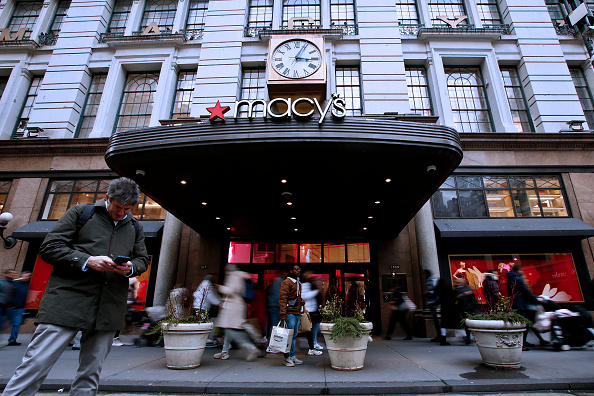Engaging Suppliers is Key to Responsible Retail Sourcing

The world’s biggest brands and retailers are prioritizing sustainability like never before. Last year, Wayfair, Crate and Barrel and Macy’s each announced initiatives to reduce the social and environmental impact of their furniture, with Macy’s outlining a policy requiring the use of responsibly sourced wood or reclaimed or recycled materials for all of its private label products.
Macy’s has also tightened its cotton sourcing policies, vowing to source 100-percent preferred cotton by 2023. Meanwhile, apparel giants like North Face, Patagonia and Adidas are increasingly exploring regenerative fabrics like plant-based nylon and mycelium-based leather as they try to reduce their dependence on plastics and cotton.
It’s no mystery why businesses are doubling down on sustainability: Consumers want them to. A recent survey by Capgemini Research Institute found that consumers overwhelmingly prefer sustainable products, with 79 percent of shoppers reporting that they’re changing their product preferences based on environmental or social impact. It’s now accepted wisdom that sustainability is good business.
A McKinsey & Company/NielsenIQ study found that products making environmental, social and governance (ESG) claims experienced faster growth than products without them. Notably, this growth was highest for private label products: In 88 percent of private label product categories, items making ESG claims achieved disproportionate sales increases.
Looking Ahead
Meanwhile, amid increasing awareness of greenwashing, consumers are more intensely interrogating the claims that products make. Businesses must now prepare not only for more socially minded consumers but also better-informed ones.
The next five years, for instance, will likely bring widespread implementation of fashion sustainability QR codes. Consumers will be able to simply scan a code on a tag and get a full account of not only the materials used and the country of origin, but also a product’s water usage and its carbon footprint. Companies that either hide or can’t provide that information will increasingly be left behind for alternatives that can.
Yet as companies continue to commit to sustainability strategies, they’re too often neglecting some of the most important stakeholders in the product development process: suppliers that manufacture their products. The success of brands and retailers’ responsible sourcing initiatives hinges on their ability to align with their suppliers.
Establishing Sustainability as a Shared Priority
Suppliers don’t think about sustainability the same way that boardrooms do. Sourcing offices need to consider cultural barriers, especially when they work with suppliers in countries like China, Vietnam and Bangladesh. For decades, these factories have operated with one unwavering objective: to make products as cheaply as possible in order to remain competitive. These suppliers may not follow the same headlines about social and environmental responsibility and consumer trends as their buyers. They’ve been hard-wired to compete on price alone.
That’s why brands and retailers need to communicate not only their objectives to their suppliers, but also a clear rationale for wanting to source responsibly — even if that results in products that cost more.
Brands and retailers can lead by example by committing to increasing business with responsible suppliers. But they also need to set these suppliers up for success by establishing clear goals and helping vendors achieve them. This process takes time: It’s unrealistic to expect a supplier to upend decades-old business models overnight. Companies should share two- and three-year vision plans with their suppliers, and then plan check-ins every six months to see if they are meeting milestones.
That’s a big undertaking, especially for businesses that depend on hundreds or even thousands of suppliers. But as is often the case with the supply chain, technology can make it a lot easier.
SRM Software Offers Visibility
Supplier relationship management (SRM) software creates key communication channels that enable closer and more efficient collaboration with supplier partners.
It acts as a window into a business’s entire supplier base, from vendors to factories to raw material providers. It also saves retailers and brands time by automating the onboarding process for vendors and factories and ensuring that all new suppliers have read and consented to the company’s terms. This way, from the very earliest stages of working with a supplier, there’s total transparency about your ESG standards and expectations.
This software also enforces a company’s social and environmental standards by preventing merchandisers from booking orders with non-compliant suppliers and preventing shipping departments from booking shipments with these vendors.
Another major benefit of SRM software, especially when used as part of a multi-enterprise platform is the traceability it enables. Through supply chain mapping, businesses are granted a fuller understanding of their environmental footprint, including where their yarns and fabrics come from, how much carbon they’re emitting, and whether they’re making progress toward reducing water and cotton consumption. An end-to-end platform like this optimizes supply chain management, allowing businesses to easily document the chain of custody of every material they use in every product they make.
Such documentation is essential for ensuring brands and retailers meet the requirements of recent supply chain laws like the U.S. Uyghur Forced Labor Prevention Act and Germany’s Supply Chain Due Diligence Act. It's also integral for helping companies make more responsible decisions.
Digitalization not only allows brands and retailers to collect and manage the data they need to reduce their environmental footprint, but it enables them to back up their sustainability claims. Thus, when a company says it's sourcing responsibly, it will be able to prove it.


